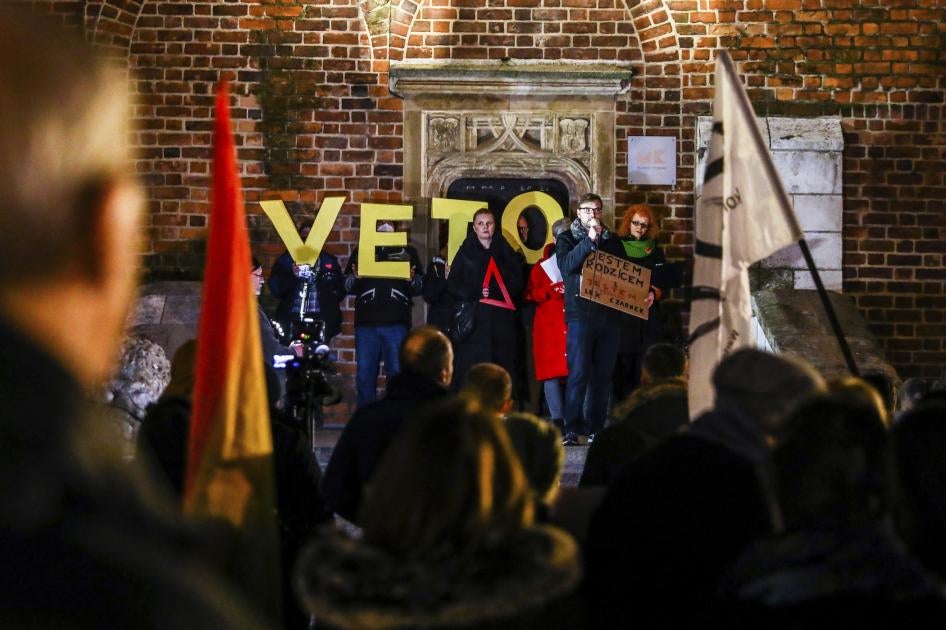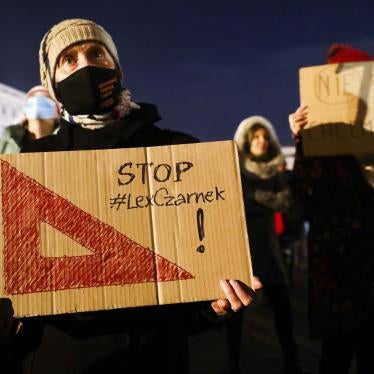In the last weeks, Polish students and activists regularly gathered in front of Warsaw’s Presidential Palace and across the country to demand respect for their rights. They called on President Andrzej Duda to veto a controversial bill that would further limit access to comprehensive sexuality education and anti-discrimination classes in schools.
Despite naysayers, these protests made a difference. On December 15, President Duda announced that he will veto the harmful bill due to public opposition. Duda said that the public had made clear there was not broad support for the bill and since the law was submitted to Parliament in October, his chancellery received 133 letters with thousands of signatures calling on him to reject it.
“Regular protests of students, teachers, parents, and non-governmental organizations in front of the Presidential Palace made a difference,” said Dominik Kuc, a member of the SOS for Education - Free School Coalition. “NGOs help schools, not harm them,” Kuc added.
The bill, informally called “Lex Czarnek 2.0” after Education Minister Przemysław Czarnek, who initiated the first version of the proposed law. President Duda vetoed that initial version in March 2022 saying that the country should avoid social conflicts in light of the war in Ukraine– Czarnek, who then promoted this updated draft bill, is known for his discriminatory comments and efforts to reshape the school curriculum in line with his arch-conservative agenda. If signed by the president, the legislation would have authorized government superintendents to decide what extracurricular or educational activities can occur on school grounds, with potentially severe consequences – the Polish government has repeatedly attempted to limit scientifically accurate, rights-based sex education, and target those providing it. Nongovernmental organizations are virtually the only ones providing sexuality education in line with international and regional standards, including on sexual orientation and gender identity, reproductive health and rights, and healthy relationships.
The public has taken to Poland’s streets countless times since the conservative Law and Justice party came to power in 2015 and launched an attack on women's and LGBT rights, judicial independence, and education. Despite enduring civil society resistance and international pressure, the Polish government is likely to continue trying to limit students’ access to accurate, inclusive, and age-appropriate sexuality education.
But today at least, Polish people celebrate their success in defending their rights.









